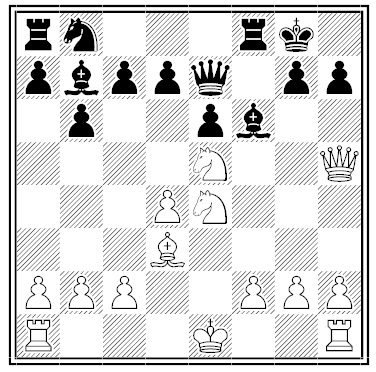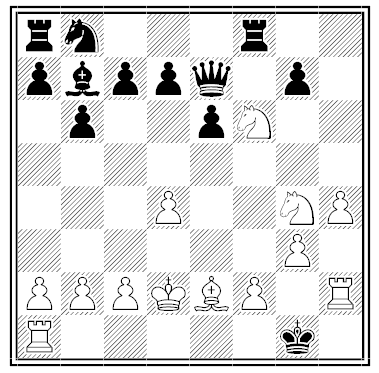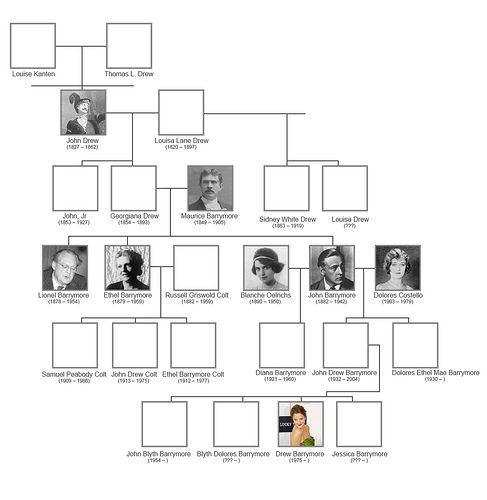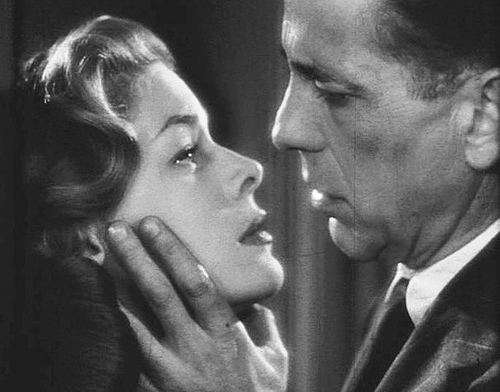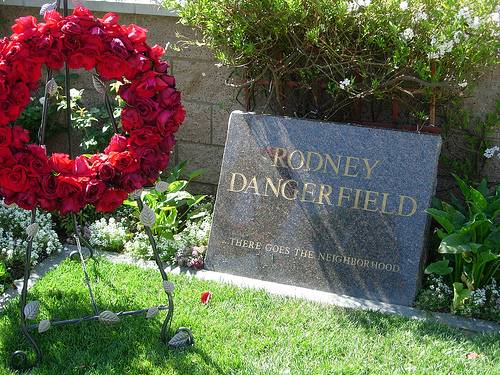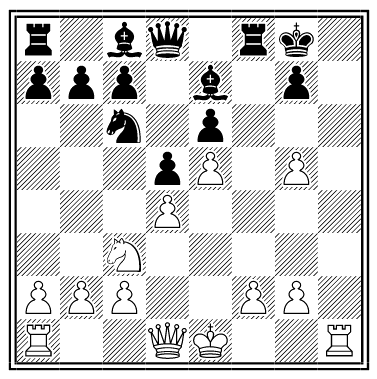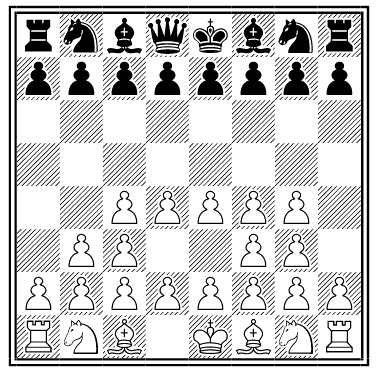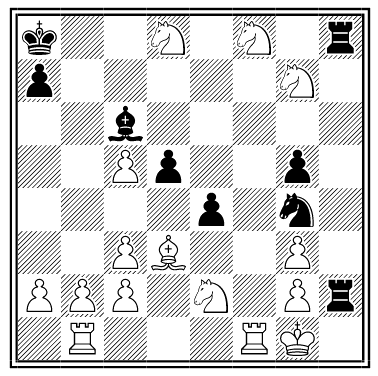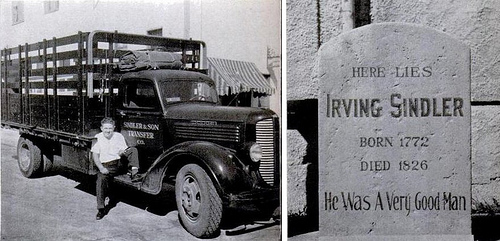
Irving Sindler was never an actor, but he found another way to star in the movies. As a property master at Sam Goldwyn’s studio, Sindler resolved to get his name onto the screen with every film he worked on. He started in 1925 by painting it on a warehouse in Little Annie Roony, and in further projects he began slipping it artfully onto bottle labels, handbills, store signs, and factory facades. He even convinced his Chinese laundryman to translate it for Marco Polo.
Above, he invented the Sindler & Son Transfer Co. to decorate a truck in The Restless Age — and for Wuthering Heights he wrote his own epitaph.

